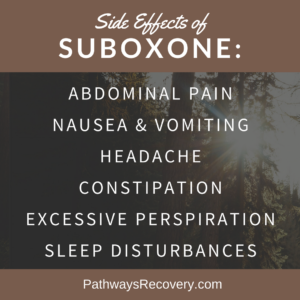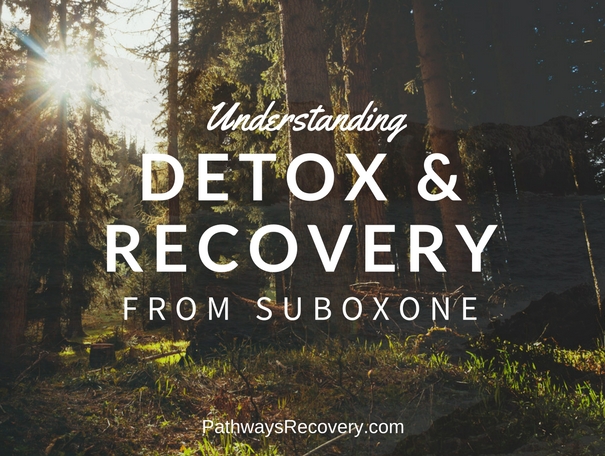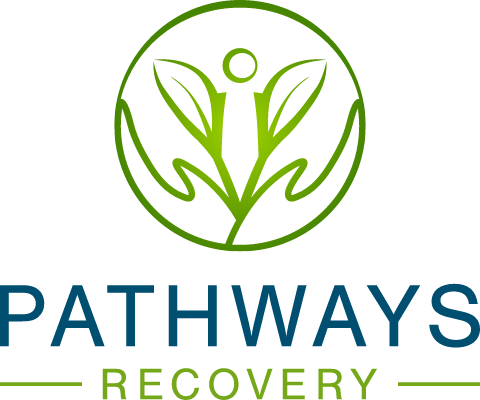
Suboxone is one example of a drug that feeds off other addictions. Doctors prescribe Suboxone for patients already addicted to opioids such as OxyContin or heroin. However, patients can develop dependencies to this medication as well. If you are addicted to Suboxone, treatment for this substance and your original drug addiction is crucial.
Understanding What Suboxone Is
Suboxone contains a combination of buprenorphine and naloxone. Buprenorphine is an opioid medication, and naloxone blocks its narcotic effects. This way, a patient can take buprenorphine for chronic pain, anxiety, insomnia and other conditions without getting the “high” people often experience with opioids.
In theory, this should prevent opioid abuse. However, many patients overuse Suboxone for reasons other than highs. For example, they might use it in search of a better night’s sleep, or because their pain might be very severe.
Suboxone comes as a tablet and in a film or strip that dissolves under the tongue. Patients should never inject or crush Suboxone and mix it into liquid. Those who take this drug need to be tested frequently to ensure proper liver function. They must also wear medical alert tags or bracelets in case of an emergency, such as accidental overdose.
Complications From Suboxone Interaction
As with many other drugs, patients should never mix Suboxone with other prescriptions or alcohol. To avoid dependency, patients should not keep leftover Suboxone tablets or films, and they should endeavor to take Suboxone exactly as prescribed. Patients should consult doctors about missed doses: It’s often OK to let a missing dose go, but not always.
Suboxone and its variant, Subutex, are potentially dangerous prescription drugs. They underwent only 16 weeks of FDA testing before going on the market to treat addiction. Additionally, they remain somewhat obscure, receiving less research than similar drugs.
Suboxone Side Effects

Nausea and vomiting are also common. Sometimes these side effects mimic withdrawal symptoms, even if you are taking regular Suboxone doses. Many people experience constipation, diarrhea and clay-colored stools, along with other gastrointestinal issues. Such issues may lead to malnutrition and overall debilitation. Contact your doctor immediately if you are struggling to eat and drink regularly while taking Suboxone.
Other Suboxone side effects also mimic other aspects of withdrawal. These include shaking, sweating and muscle pain or cramps. Patients who use the sublingual film may experience tongue pain or swelling. Numbness or redness inside the mouth is common as well. Arm and leg swelling also occurs, in many cases.
How Do I Know If I’m Addicted To Suboxone?
Due to its laundry list of side effects, it isn’t always easy to identify addiction to Suboxone or Subutex. Many patients do not seek addiction treatment until they experience overdose symptoms.
Early overdose symptoms include:
- Clammy skin
- Muscle flaccidity
- Lowered heart rate and blood pressure
- Circulatory or respiratory issues
If you suspect you are overdosing, contact your doctor immediately. He or she will treat the overdose and give you a full physical exam. The exam’s results will help clinicians tailor your treatment plan when you begin detox.
What To Expect During Detox And Recovery From Suboxone
Suboxone detoxification may feel harder than other detox regimens because it requires getting off a drug that was supposed to end a different addiction. During detox, you will probably deal with severe original symptoms such as anxiety, insomnia and panicking. This is why it is so vital to detox in an addiction treatment facility with professionals nearby to help.
Additionally, withdrawal from Suboxone or Subutex looks a bit different from most withdrawal processes. Many addicts mistake initial endorphin drops for withdrawal. However, true withdrawal does not begin until addicts start tapering off dosages. True withdrawal can take as long as 72 hours to begin, and the full process can last up to a month.
Many Suboxone withdrawal symptoms mimic those of other drugs, especially opioids. You will experience the worst physical and psychological symptoms within the first 72 hours after initial withdrawal. Symptoms include headaches, fever or chills, nausea, vomiting and diarrhea. Psychologically, you may experience resurgent original symptoms such as anxiety, agitation and insomnia. Some addicts get violent at this stage, but clinicians will help you avoid harming yourself and others.
During the first week of withdrawal, your physical symptoms will decrease, but you may still experience anxiety and mood swings. Within two weeks, the worst physical and psychological symptoms will decrease dramatically. However, you will probably experience cravings and depression. Inpatient treatment can help tremendously during this stage.
Suboxone Addiction Therapy
Addiction therapies will vary depending on your facility. Cognitive behavioral therapy (CBT) is a must: Your therapist may use psychodrama or role-playing as part of it. Other facilities offer equine, art, music and recreational therapy, including group fitness classes, personal yoga, tai chi or qigong sessions.
Some facilities supplement detox with electroencephalogram (EEG) biofeedback, also called neurofeedback. Biofeedback helps you retrain your brain to respond to stress without opioids or Suboxone.
Seeking Help For Suboxone Addiction
If you or a loved is suffering from Suboxone or Subutex addiction, contact Pathways Recovery, in Sacramento, CA, right away. We will work with you, your physician and your family to determine a treatment plan that covers Suboxone and original opioid addictions.
Pathways Recovery is a prestigious detox treatment center that services the greater area of Sacramento. Here at Pathways Recovery, in Sacramento, CA, we know how hard it is to start the road to recovery from drug addiction and alcohol addiction while having compassion and patience for those recovering. We have many services to cater to each individual in regards to their lifestyle and budget. Our detox treatment center is made to make everyone feel safe and at home with many of our services, including opiate detox treatment.
Contact us today for further information over our services and see which one fits for you or a loved one. Don’t think you are alone; we are here to help you on your road to recovery.


